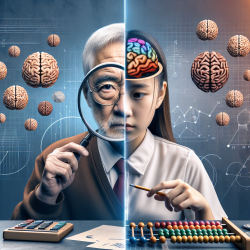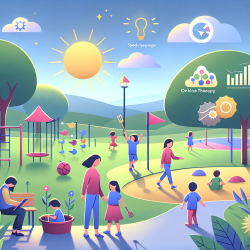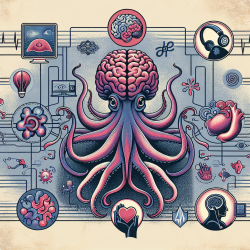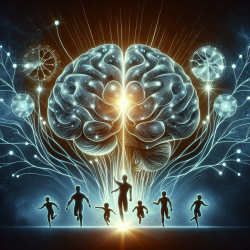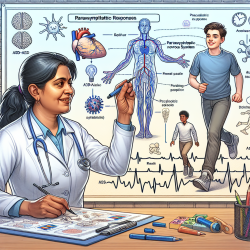Introduction
As a Special Education Director, staying informed about the latest research and trends is crucial for enhancing practitioner skills and ensuring the best outcomes for students. The study "Testing Bidirectionality in Associations of Awareness of Age-Related Gains and Losses With Physical, Mental, and Cognitive Functioning Across 1 Year: The Role of Age" offers valuable insights into the bidirectional relationship between self-perceptions of aging and health-related outcomes. Understanding these associations can help practitioners improve their skills and encourage further research.
Understanding Awareness of Age-Related Changes (AARC)
The concept of Awareness of Age-Related Changes (AARC) involves recognizing both positive (AARC-gains) and negative (AARC-losses) changes across various life domains, including cognitive functioning, socioemotional aspects, physical health, and lifestyle. The study highlights that higher AARC-losses are associated with greater functional difficulties, depression, and anxiety, while AARC-gains did not show significant associations with these outcomes.
Implications for Practitioners
Practitioners can leverage these findings to enhance their skills and improve student outcomes by:
- Promoting Positive Perceptions: Encourage students to focus on positive age-related changes, such as accumulated knowledge and experience, to foster a healthier mindset.
- Addressing Negative Perceptions: Recognize and address negative perceptions of aging, which can impact mental health and functional status. Implement strategies to help students reframe these perceptions.
- Integrating Multidimensional Measures: Utilize multidimensional measures of AARC to better understand students' perceptions and tailor interventions accordingly.
Encouraging Further Research
While the study provides valuable insights, there is still a need for further research to explore the bidirectional associations between AARC and cognitive functioning. Practitioners can contribute to this research by:
- Participating in Studies: Encourage participation in longitudinal studies to gather more data on the impact of AARC on cognitive functioning over time.
- Collaborating with Researchers: Work with researchers to design studies that explore the effects of interventions aimed at reducing negative AARC-losses.
- Sharing Observations: Document and share observations from practice to provide real-world insights into the effects of AARC on student outcomes.
Conclusion
Understanding the bidirectional relationship between AARC and health-related outcomes is essential for practitioners seeking to improve their skills and enhance student outcomes. By promoting positive perceptions of aging and addressing negative ones, practitioners can foster healthier mindsets and better functional status in students. Additionally, engaging in further research will provide deeper insights into the complex interactions between AARC and cognitive functioning.
To read the original research paper, please follow this link: Testing Bidirectionality in Associations of Awareness of Age-Related Gains and Losses With Physical, Mental, and Cognitive Functioning Across 1 Year: The Role of Age.
